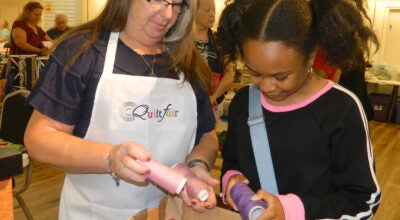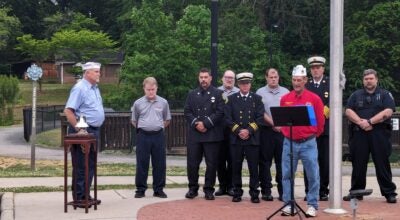RCCC explores partnerships with school systems to meet biotech needs
Published 12:00 am Wednesday, May 27, 2009
By Emily Ford
eford@salisburypost.com
KANNAPOLIS ó Many scientists who have moved from around the world to work at the N.C. Research Campus are married.
And many of their spouses have special skills, but no job.
What if these men and women taught in the Kannapolis City Schools?
Recruiting spouses into careers in education, especially those who speak foreign languages, was one idea tossed around during a brainstorming session Tuesday between leaders from Rowan-Cabarrus Community College and Kannapolis City Schools.
“This is the first step of the ladder, getting to know you,” said Ray Paradowski, chairman of the RCCC board of trustees. “There is a lot of interest in collaboration and cooperation.”
RCCC leaders have met with school officials from the Rowan-Salisbury and Cabarrus County school systems as well.
The meetings are in response to a study that says Cabarrus and Rowan counties are not prepared to provide the skilled workforce needed by the $1.5 billion Research Campus, a fledgling life sciences hub expected to create 5,000 biotech jobs in the next decade.
The city of Kannapolis hired Market Street, an Atlanta consulting firm, to estimate the impact of the Research Campus and identify community needs.
Market Street made 71 recommendations for RCCC to help respond to the educational challenges in the Rowan-Cabarrus area.
“Working with school systems is one of most important things we can do,” RCCC president Dr. Carol Spalding said.
She and Kannapolis City Schools Superintendent Dr. Jo Anne Byerly already have a standing lunch date every other month, which sometimes turns into a support group session during these tough economic times, Spalding said.
But as the state cuts funding, educators must come together to share resources and stretch every dollar, she said.
“We see there is a very fertile field for collaborations, even with no money or very little money to collaborate,” Spalding said.
RCCC could train Kannapolis teachers in English as a second language. The college could facilitate a lateral entry program for people in business and industry who are interested in becoming teachers.
Vice President for Student Services Gaye McConnell suggested testing high school juniors to determine weaknesses in math, reading and English. Additional instruction during high school will help prepare students for college and cut the need for remedial classes at RCCC, she said.
Spalding has placed new emphasis on making sure students complete their degree certification or diploma.
The college will offer more night and weekend classes, as well as online courses.
“We will begin to offer all courses all the time,” she said. “We are going from supply-driven to demand-driven.”
The change will take time, but “you’ll see a big difference in the future going that direction,” Spalding said.
She called it “excuse-less education.”
RCCC will play a key role in counseling Kannapolis students and parents about what classes to take to prepare for a career in biotech. Workshops will begin next academic year.





